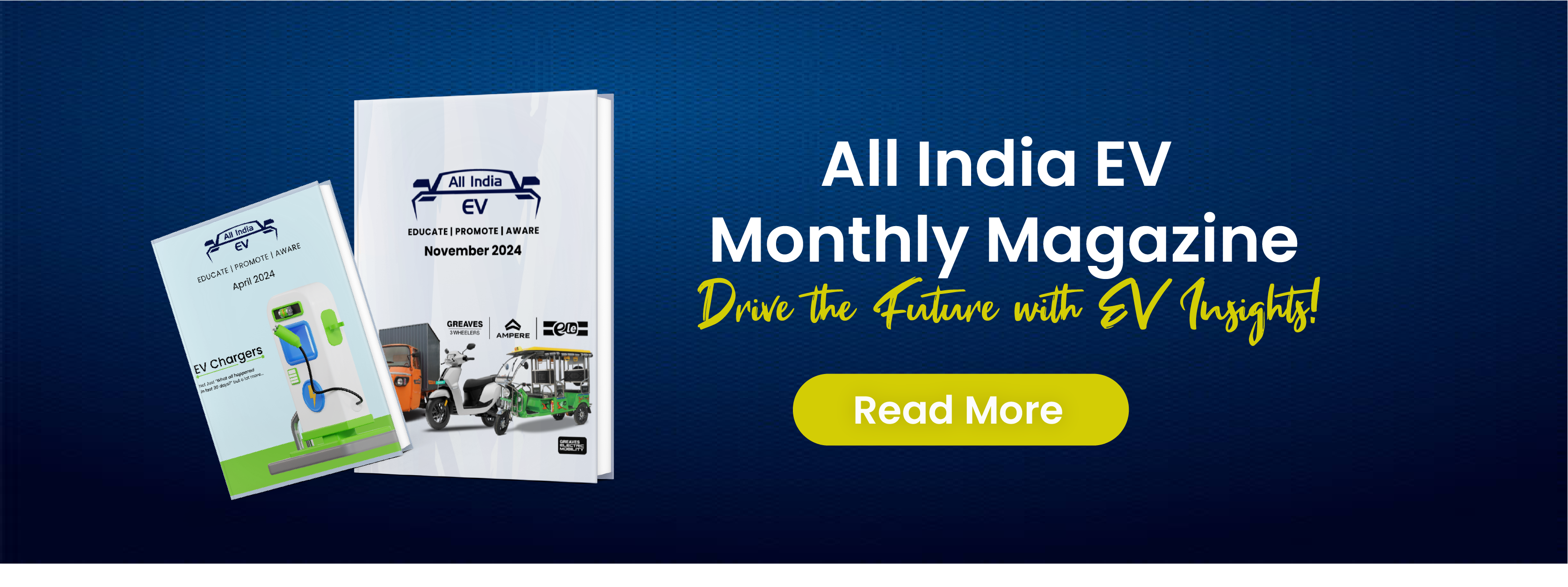
`Electric Vehicle (EV) Battery Market to Reach US$ 347 Billion by 2033
According to a recent analysis by Fact.MR, the global electric vehicle (EV) battery market is expected to undergo substantial growth at an impressive Compound Annual Growth Rate (CAGR) of 18.5%, reaching a valuation of US$ 347 billion by the conclusion of 2033, a significant increase from the 2023 figure of US$ 63.55 billion.
The demand for Electric Vehicle Batteries is anticipated to surge throughout the forecast period, with the market having been valued at USD 91 billion in 2020. The driving forces behind the escalating sales of electric vehicle batteries include the increasing demand for zero-emission vehicles, driven by rising fuel costs, depletion of fossil fuel reserves, and stricter pollution regulations.
The global electric vehicle battery industry is poised to benefit from ongoing developments in new battery chemistries designed for electric cars. The preference for lithium-nickel-manganese-cobalt-aluminum oxide (NMCA) alloys, owing to their superior energy density and extended life cycle, is on the rise, creating new avenues for growth.
The electric car market is witnessing rapid global expansion, with major vehicle manufacturers entering the market to meet the growing demand for EVs. This influx is expected to stimulate long-term demand for EV batteries. Leading manufacturers such as Toyota, Tata Motors, Mercedes-Benz, and Hyundai are actively developing electric vehicle models to solidify their positions in the industry. The acceleration of electric car development is anticipated, driven by the keen interest of major manufacturers in the electric vehicle sector.
Surging E-mobility Trends and their Impact on EV Battery Sales:
The increasing sales of electric vehicles are set to propel the e-mobility trend during the projection period. The ongoing establishment of integrated charging stations and the construction of green power-generation capabilities are expected to further contribute to the market’s growth.
Strategic collaborations between e-mobility providers, battery manufacturers, and energy suppliers represent another trend likely to boost electric vehicle battery sales. Concurrently, automakers are driving technological advancements to ensure robust propulsion for their electric vehicles.
Insights by Country
Anticipated growth for electric vehicle batteries in the United States is remarkable, with a projected Compound Annual Growth Rate (CAGR) of 19.2% throughout the forecast period.
The United States has emerged as a dominant force in the electric vehicle battery sector. The ongoing advancement of electric vehicles is fostering increased competition among industry players, leading to a surge in product launches.
Factors such as heightened electric vehicle sales, stringent government emissions regulations, and the presence of renowned electric vehicle manufacturers contribute significantly to market expansion. The growing consumer preference for environmentally friendly products and the increasing adoption of cutting-edge technology further bolster market growth.
Insights by Battery
Type The market is categorized into lithium-ion batteries, lead acid batteries, nickel hydride batteries, and other batteries based on battery type.
Lithium-ion batteries currently dominate the global market with a 63% share. The increasing popularity of lithium-ion batteries is largely attributed to their favorable capacity-to-weight ratio. Advantages such as high energy density, charge retention capacity, and low maintenance have propelled lithium-ion batteries to the forefront of the battery industry.
The growing demand for lightweight, high-energy-density batteries to power efficient electric cars is expected to drive the sales of lithium-ion batteries. Presently, all pure electric cars and hybrid electric vehicles rely on lithium-ion batteries as their primary power source. Compared to earlier battery technologies, lithium-ion batteries are considerably safer, and stringent safety regulations are followed by all battery manufacturers to ensure customer safety in the event of a battery failure.
Competitive Dynamics
Leading manufacturers in the electric vehicle battery sector are prioritizing innovation, stringent quality control, adherence to product standards, collaborations, and efficient supply chain management. Concurrently, major automakers are strategically forging alliances with battery producers to ensure a dependable and consistent supply of batteries.
Illustrative Example:
✅️ Panasonic’s Breakthrough in 2021: In 2021, Panasonic unveiled its groundbreaking Tesla-specific 4680 battery cell. Claiming a sixfold increase in power capacity and fivefold surge in energy, the new battery cell is anticipated to offer heightened efficiency, extended range, and potentially lower costs. This innovation signifies a significant stride toward advancing battery technology, especially in the context of compact battery packs.
Key Industry Players
Key suppliers of Electric Vehicle (EV) Batteries around the world include CATL, LG Energy Solution, BYD, Panasonic, SK on, Samsung SDI, CALB, Guoxuan, Sunwoda, SVOLT, etc.

